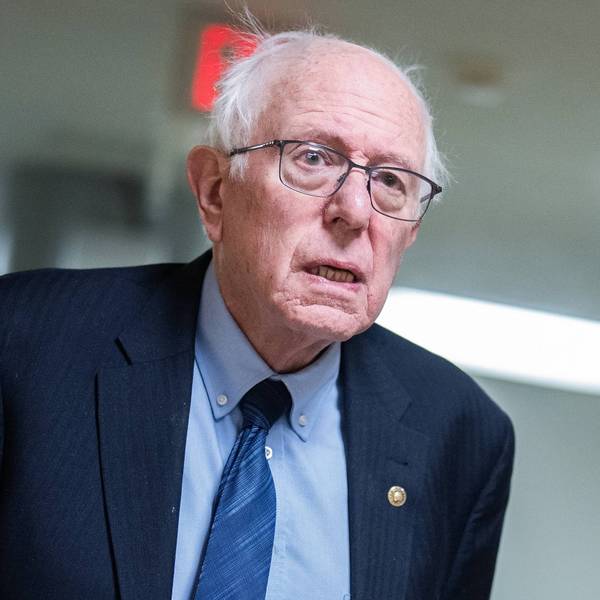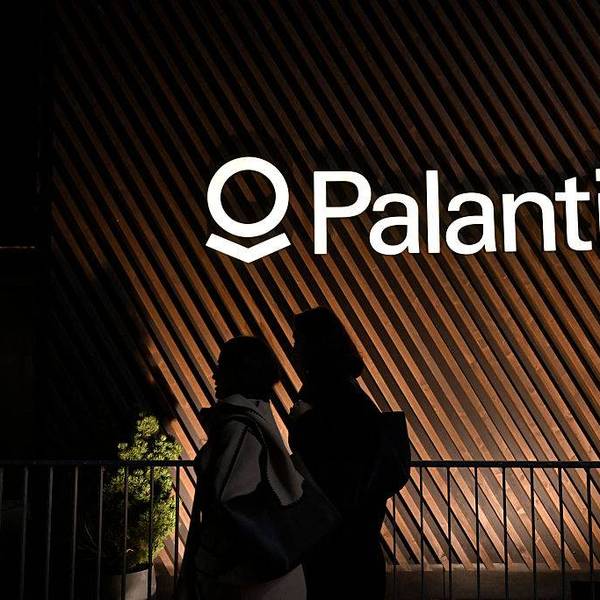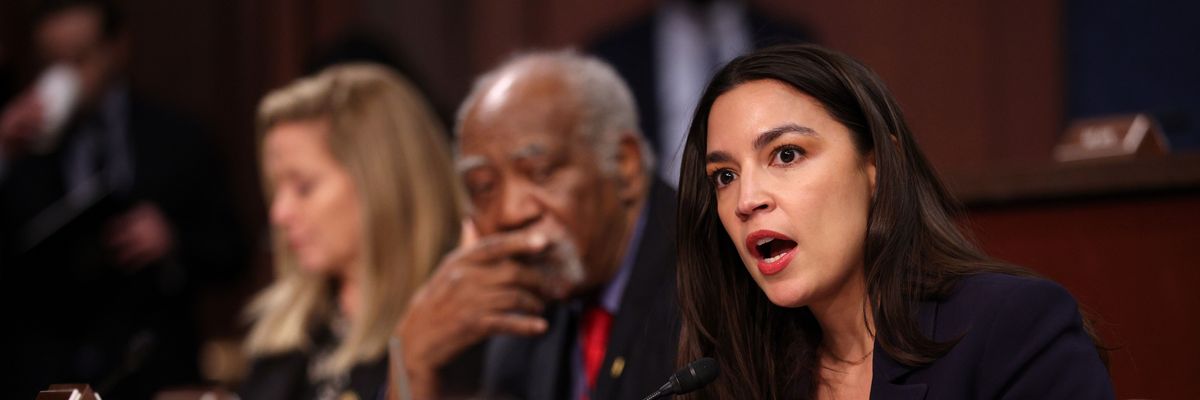US Rep. Alexandria Ocasio-Cortez said Tuesday that the federal government should not consider a taxpayer bailout of the artificial intelligence industry as fears grow that the rapidly expanding sector poses systemic risks to the global economy.
"Should this bubble pop, we should not be entertaining a bailout," Ocasio-Cortez (D-NY) said during a House subcommittee hearing. "We should not entertain a bailout of these corporations as healthcare is being denied to everyday Americans, as SNAP and food assistance is being denied to everyday Americans, precipitating some of the very mental crises that people are turning to AI chat bots to try to resolve."
Ocasio-Cortez echoed the concerns of industry insiders and analysts who have warned in recent weeks that the AI investment boom created a bubble whose rupture would cause far-reaching economic carnage.
"We're talking about a massive economic bubble," the New York Democrat said Tuesday. "Depending on the exposure of that bubble, we could see 2008-style threats to economic stability."
Ocasio-Cortez's remarks came on the same day that Sen. Elizabeth Warren (D-Mass.) sounded the alarm about potential Trump administration plans to "use taxpayer dollars to prop up OpenAI and other AI companies at the expense of working class Americans."
"The Trump administration’s close ties with AI executives and donors—including millions of dollars of contributions to President Trump’s new ballroom project—raise concerns that the administration will bail out AI executives and shareholders while leaving taxpayers to foot the bill," Warren wrote in a letter to the White House's AI czar, David Sacks.
OpenAI, a firm at the center of the nascent industry, has reportedly been in discussion with the Trump administration about the possibility of receiving federal loan guarantees for the construction of chip factories in the United States. Robert Weissman, co-president of the watchdog group Public Citizen, warned earlier this month that "it is entirely possible that OpenAI and the White House are concocting a scheme to siphon taxpayer money into OpenAI’s coffers, perhaps with some tribute paid to Trump and his family."
"Perhaps not so coincidentally, OpenAI president Greg Brockman was among the attendees at a dinner for donors to Trump’s White House ballroom, though neither he nor OpenAI have been reported to be actual donors," Weissman added.
Writing for the Wall Street Journal last week, Sarah Myers West and Amba Kak of the AI Now Institute observed that "the federal government is already bailing out the AI industry with regulatory changes and public funds that will protect companies in the event of a private sector pullback."
"The Trump administration is rolling out the red carpet for these firms," they wrote. "The administration’s AI Action Plan aims to accelerate AI adoption within the government and military by pushing changes to regulatory and procurement processes. Government contracting offers stable, often lucrative long-term contracts—exactly what these firms will need if the private market for AI dips."
"Federal policy has jumped the gun: We don’t yet know if AI will transform the economy or even be profitable," West and Kak added. "Yet Washington is insulating the industry from all sorts of risk. If a bubble does pop, we’ll all be left holding the bag."




